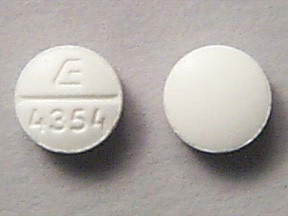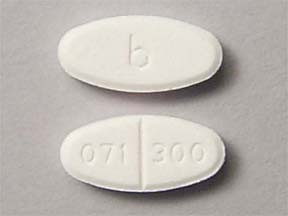ISONIAZID - ORAL
PHONETIC PRONUNCIATION: (EYE-soe-NYE-a-zid)
COMMON BRAND NAME(S): Niazid
GENERIC NAME(S): isoniazid
Uses
USES: Isoniazid is used with other medications to treat active tuberculosis (TB) infections. It is also used alone to prevent active TB infections in people who may be infected with the bacteria (people with positive TB skin test). Isoniazid is an antibiotic and works by stopping the growth of bacteria. This antibiotic treats only bacterial infections. It will not work for viral infections (such as common cold, flu). Using any antibiotic when it is not needed can cause it to not work for future infections.
How to use ISONIAZID - ORAL
HOW TO USE: Take this medication by mouth on an empty stomach (1 hour before or 2 hours after meals) as directed by your doctor. If you are using the liquid form of this medication, carefully measure the dose using a special measuring device/spoon. Do not use a household spoon because you may not get the correct dose. If you also take antacids that contain aluminum, take this medication at least 1 hour before the antacid. Dosage is based on your age, weight, medical condition, and response to treatment. For the best effect, take this drug at evenly spaced times. If you are taking this medication daily, take it at the same time each day. If you are taking this medication on a weekly schedule, take it on the same day(s) of the week and at the same time each day. Mark the days on the calendar when you need to take the medication. Continue to take this medication (and other TB medications) until the full prescribed amount is finished, even if symptoms disappear. Stopping the medication too early or skipping doses may allow the bacteria to continue to grow, which may result in a return of the infection and cause the infection to be more difficult to treat (resistant). Your doctor may also direct you to take vitamin B6 (pyridoxine) to help prevent certain side effects (such as nerve problems) from isoniazid. Follow your doctor's instructions carefully. Isoniazid may interact with foods containing tyramine/histamine (such as cheese, red wine, certain types of fish). This interaction may cause increased blood pressure, flushing of the skin, headache, dizziness, or fast/pounding heartbeat. Tell your doctor right away if any of these symptoms occur. Your doctor may recommend that you follow a special diet while taking this medication. Consult your doctor for more details. Tell your doctor if your condition persists or worsens.
Side Effects
Precautions
Interactions
Overdose
Images
Reviews
Faq for ISONIAZID - ORAL
Isoniazid is an antibiotic medication used in the treatment of tuberculosis (TB) and to prevent TB infection in individuals who are at a higher risk.
Isoniazid works by stopping the growth of the bacteria that causes tuberculosis.
Isoniazid should be taken exactly as prescribed by your doctor. It is usually taken once a day on an empty stomach, either one hour before or two hours after meals.
If you miss a dose of Isoniazid, take it as soon as you remember. However, if it is already close to your next scheduled dose, skip the missed dose and continue with your regular dosing schedule.
Common side effects of Isoniazid include nausea, vomiting, loss of appetite, and mild stomach upset. More serious side effects may include liver problems, numbness or tingling in the hands or feet, and mental/mood changes. It is important to report any severe or persistent side effects to your doctor.
You should avoid alcohol while taking Isoniazid, as it can increase the risk of liver damage.
Yes, Isoniazid can interact with several medications. It is important to inform your doctor about all the medications you are currently taking, including prescription, over-the-counter, and herbal products.
The duration of treatment with Isoniazid can vary depending on the condition being treated. It is important to take the medication for the full prescribed length of time, even if your symptoms improve.
If you are pregnant or breastfeeding, it is important to discuss the potential risks and benefits of taking Isoniazid with your doctor.
Warning
WARNING: Isoniazid has rarely caused very serious (possibly fatal) liver disease. The risk of liver disease is increased in people who are 35 years and older, who use alcohol or illegal injection drugs, or who currently have long-term liver problems. Tell your doctor right away if you develop symptoms of liver disease, including persistent nausea/vomiting, severe stomach/abdominal pain, unusual weakness/tiredness, dark urine, yellowing eyes/skin. Your doctor should order liver function tests while you are taking this medication. Keep all medical and laboratory appointments.
Disclaimer
IMPORTANT: HOW TO USE THIS INFORMATION: This is a summary and does NOT have all possible information about this product. This information does not assure that this product is safe, effective, or appropriate for you. This information is not individual medical advice and does not substitute for the advice of your health care professional. Always ask your health care professional for complete information about this product and your specific health needs.




No Reviews Yet